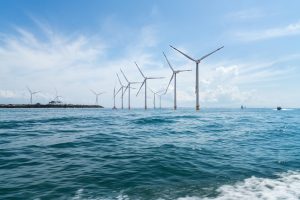Indonesia’s energy sector stands at the cusp of potentially transformative change with Prabowo Subianto’s assumption of the presidency in October. While the energy policy of the incoming administration has yet to be articulated in detail, an analysis of Prabowo’s campaign promises and political trajectories offers insights into what this crucial sector might look like under the new administration.
The election campaign manifesto of Prabowo and his vice-presidential running-mate Gibran Rakabuming Raka envision Indonesia as a “green energy superpower,” a status that would be achieved through the advancement of bioenergy, alongside hydro, wind, wave, solar, and geothermal power. Above all, their perspective on energy is heavily influenced by the idea of energy self-sufficiency.
Their platform includes several programs to achieve this goal, such as reducing red tape for the renewable energy industry, providing incentives for the discovery of energy reserves, constructing hydropower dams, and revitalizing degraded forests for bioethanol production.
In addition to these state commitments, the sector can also anticipate a continued openness to foreign investment, particularly in downstream natural resources, infrastructure, and facets crucial to energy transition. As under President Joko “Jokowi” Widodo, Indonesia will continue to rely on foreign capital and technology to develop its energy and natural resources industries.
Prabowo’s approach appears to build upon Jokowi’s pragmatic investment strategy, buttressed by a conducive operating environment that hinges upon political stability and efficient bureaucracy. Key figures in business and investment policy-making will likely also retain an influence, ensuring some degree of continuity in the Prabowo administration’s economic and energy outlook.
Several areas, however, warrant close observation by energy stakeholders. First, there may be a shift away from Indonesia’s traditionally conservative public expenditure patterns to fulfill the ambitious “quick wins” promised by Prabowo. This trend could see increased state spending in the energy sector, particularly in infrastructure and renewable energy projects, to accelerate Indonesia’s energy transition.
Furthermore, the influence of state-owned enterprises (SOEs) and local conglomerates within the energy and natural resources sector can be expected to grow. This increase aligns with the president-elect’s longstanding advocacy of self-sufficiency and sovereignty in strategic industries, which often means policies that prioritize domestic players.
The strategic focus may include leveraging SOEs and local conglomerates to achieve specific national objectives, including ramping up the development of downstream natural resources industries, boosting the production of oil and gas, and accelerating the energy transition.
Moreover, specific policies aimed at bolstering local value-add will likely remain, such as restrictions on mineral ore exports, particularly nickel. While the direction of renewable energy policy will likely become clearer throughout this year, the powerful coal industry will continue to play a large role in energy policymaking. Decarbonization is slated to be a key theme of Prabowo’s presidency given the significance of potential investments in carbon capture and storage.
Despite the global push for decarbonization, Indonesia’s energy transition objectives must navigate the entrenched interests of the coal industry, a significant source of national revenue and energy. Balancing these interests with the imperative for renewable energy adoption will be a delicate task for the new administration.
Lastly, the implementation of “sensitive” regulations, particularly those impacting the energy sector’s regulatory framework, may be postponed until the Prabowo administration is fully established. This delay could impact the pace at which Indonesia adopts new energy technologies and transitions towards greener energy sources.
In sum, the incoming administration heralds a period of cautious optimism for the energy sector in Indonesia. Companies should prepare for both the opportunities and challenges that lie ahead, closely watching the administration’s policy direction and strategic priorities to address the evolving landscape effectively.

































